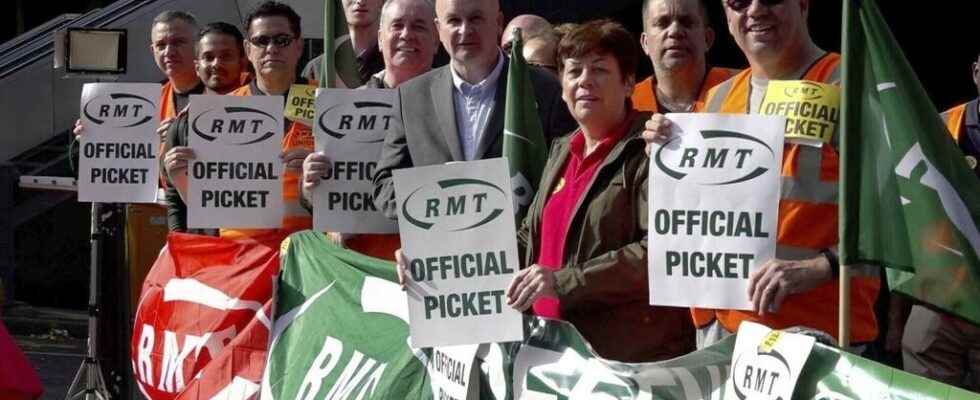British railway workers observe their third day of strike of the week on Saturday, in a dispute which concerns employment and wages in the face of record inflation for 40 years which hits the United Kingdom. The strike, which began on Tuesday and Thursday, is the largest the country has seen in three decades.
Only one in five trains should run and half of the lines will be closed, according to traffic forecasts. This is limited to a time slot from 7:30 a.m. to 6:30 p.m. Disruptions are still expected on Sunday. Chairman of the Rail Delivery Group, which represents UK rail operators, Steve Mongomery, advised commuters not to travel “ only if necessary and find out about traffic conditions.
The RMT union, which has called for the strike, is demanding wage increases in line with inflation, but also denounces the prospect of ” thousands of layoffs and the deterioration of working conditions. “ In a modern economy, workers need to be properly rewarded for their work, provided with good conditions, and given peace of mind that they will not lose their jobs. said the organisation’s general secretary, Mike Lynch, warning that the movement could spread without agreement.
Boris Johnson wants to make a law to break the strikes
From Kigali where he participated at the top of the commonwealthPrime Minister Boris Johnson estimated on Sky News that the British “ have the right to expect basic reforms “, especially in the face of ” practices that no one defends except union leaders “. His government announced this week its intention to change the law to allow the use of temporary workers to replace strikers and reduce the impact he deems “ disproportionate ” strikes.
For his part, Transport Minister Grant Shapps accused the RMT on Twitter of “ harm the lives of people who work hard every day “. On Friday, an international federation of trade unions and some of its members in 52 countries called on the British government to get directly involved in the negotiations to find a solution to the conflict.
This week’s strikes are an estimated £150m (€174m) loss to the sector. Faced with the cost of living crisis, discontent is intensifying and strikes are also planned this summer among British Airways ground staff at London’s Heathrow airport, some lawyers, and could also extend to teachers, postal workers or in health.
►Also listen: International guest – Strikes and inflation in the United Kingdom: “Prices are rising faster than wages”
(With AFP)
